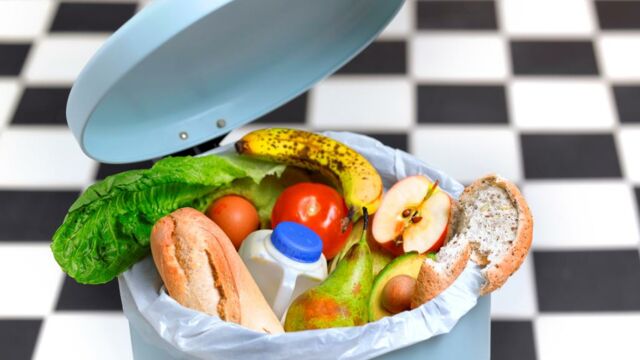Experts are predicting that the grocery bill of British households might soar to a staggering £533 annually, according to The Guardian. While there is not much you can do about inflation, properly managing food waste in your kitchen can lead to significant savings on your supermarket bill.
Discover our latest podcast
As reported by The Sun, research conducted by Tesco has found that people waste a huge amount of food on a daily basis. Not only is this environmentally unsound, but also terrible for the pocket. The Sun reported that throwing away food might be costing British families an eye-watering £800 a year.
Catherine David, director of collaboration and change at climate charity, WRAP, is quoted as saying,
Wasting food costs money and feeds climate change. But less food wasted means more money in people's pockets, and a lower carbon footprint – a win-win for people and planet.
Most of this waste is because families forget to eat the food they brought. The most commonly wasted food items are bread, bananas, and milk. Here are some changes you can make to reduce food waste.

Learn how to store food properly
Properly storing food can increase its longevity substantially. It might seem like a lot of hassle to learn about the storage needs of different fruits and vegetables, but once you start doing it, your pantry would be proofed against wastage. You would also have a better idea of what foods to buy to be eaten soon and which ones you can store for longer. Here is an article from New York Times about how to store your produce so they remain fresh for weeks.
Take the time to meal-plan
Planning out your weekly meals in advance can save you from purchasing things that might otherwise have had to be binned uneaten. Planning meals helps you realise what food you actually end up eating and which ones you routinely waste. While it might not be fun for everyone, the money you save will make up for the trouble.

Stick to your shopping list
A lot of us wander around the supermarket aisle without a plan and end up impulse buying. This very often includes things you have no need for, like the discounted melons which were 2 for 1 and seemed like a great idea at the time. But now you are stuck with a lot of melons that you know you cannot finish. Having a shopping list saves you from this kind of wasteful last-minute impulse purchase.
Repurpose leftovers and still edible food
There is a lot that can be done to repurpose leftover food and the food which are still edible. For example, you can make a soup with a random assortment of vegetables at the bottom of your fridge, or instead of throwing away ripe bananas, try cooking with them with the help of these tips. Here are more ways to repurpose leftovers by Healthline.
Read more:
⋙ Aldi’s surplus food to be available for only £3.30 in trial run with Too Good To Go
⋙ You can save £60 a month with this simple trick with your fridge
⋙ Pint of beer for £9 a real possibility as rising costs hit restaurant goers















